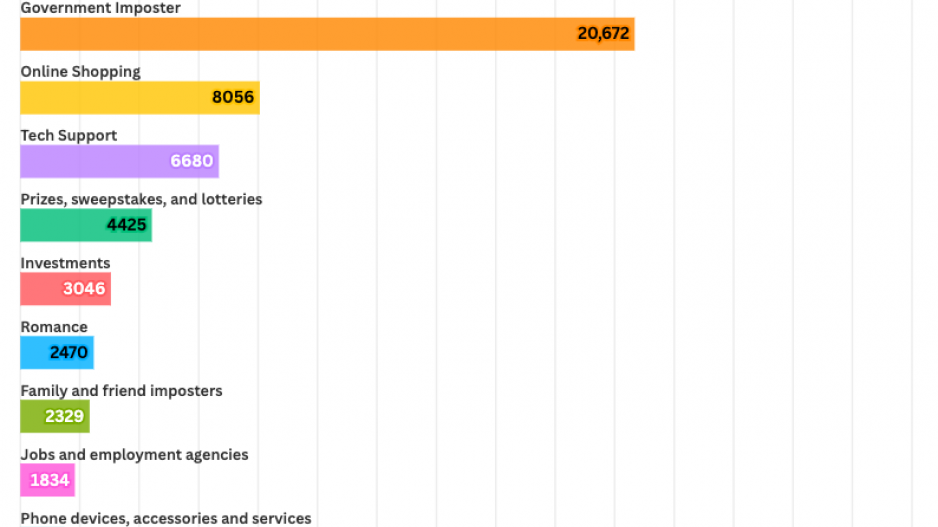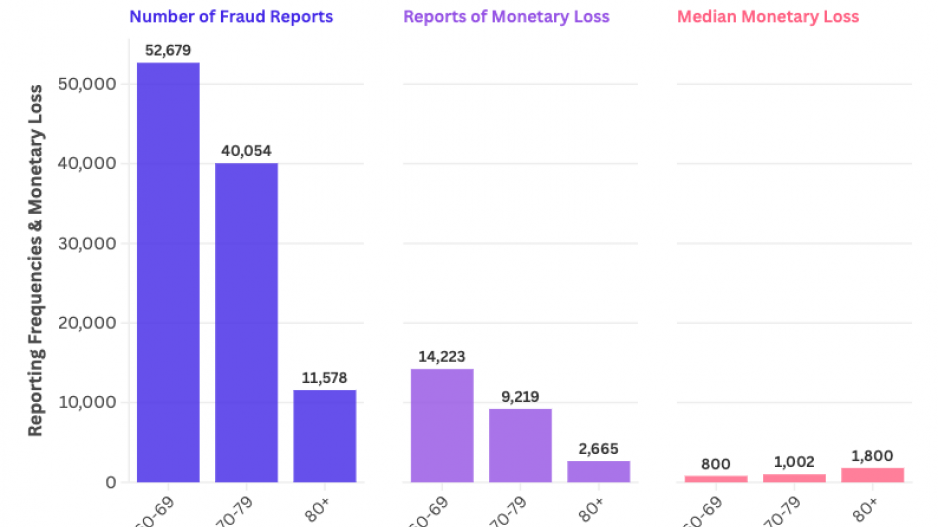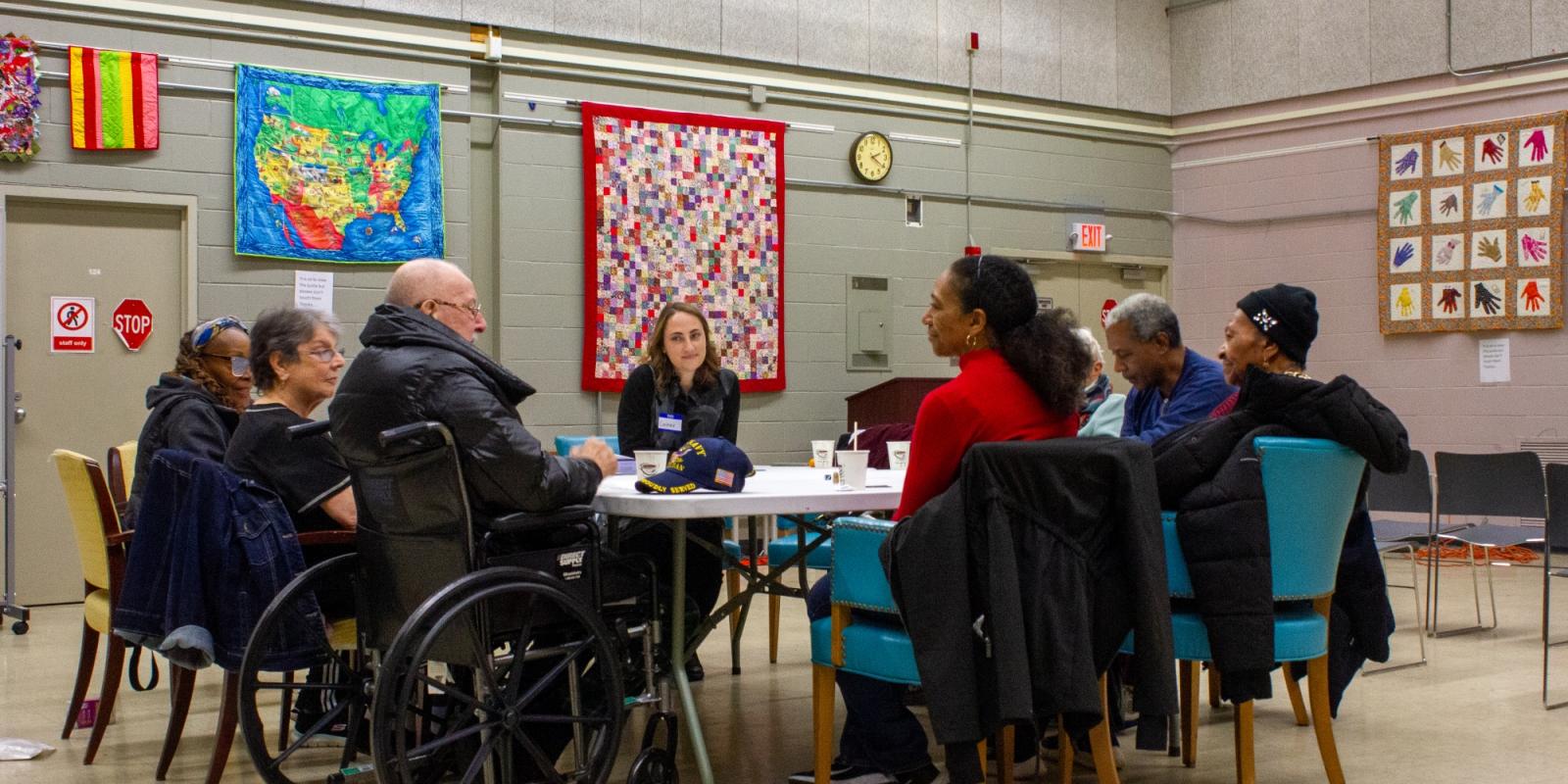This article is one of a series of four published as part of a collaboration between the American Society on Aging’s Generations Now blog and the Department of Journalism in Boston University’s College of Communication. The student journalists are members of Professor Meghan E. Irons’ Online Journalism class for graduate students.
Tech-savvy or not, 1 in 10 older adults are victims of fraud per year—a disproportionately high rate compared to other age demographics. However, they are least likely to report being scammed, according to the Federal Trade Commission.
From bank fraud to fantastical romances, scams come in all forms.
“I think there’s a huge disconnect between what’s available and how it gets provided to the older adult population,” said Corinne White, who works as an advocate for the older population through the Age Strong Commission in the City of Boston.
In a recent interview, White described a woman who lost her house to a scammer who had infiltrated her Facebook support group pretending to be a military veteran.
He convinced the woman, whose late husband was a veteran, to sign over her house in his name and sell her late husband’s possessions. He then stopped responding to her calls, White said. Listen as White relays the story here.
Top 10 Most Common Scam Types for Victims ages 60+
Data provided by the Federal Trade Commission 2024.

More than 100,000 individuals ages 60 and older reported fraud, according to 2024 FTC data. Of those reports, 25% claimed monetary losses, with a median of $1,200, the data said.
As people age, they are more fearful of reporting scams and less aware of how to bring troubling cases to the authorities, said Jackie Lamont, forensic investigator for the Suffolk County district attorney, and Kevin Hayden, Suffolk County district attorney and collaborator with Suffolk County Fraud Fighters, which works to arm older adults with the tools they need to identify, avoid, and report scams.
Some people are ashamed of reporting being scammed and others lack a basic understanding of how to use technology to detect fraud. Lamont said more education and training are needed to help older people fight back against scamming.
“I can hover or click on that email and see the address and know that that’s not a legitimate address. Little tools like that would be very helpful,” Lamont said. Listen as Lamont talks about scams here.
Senior Fraud Reporting Statistics
Data provided by the Federal Trade Commission 2024.

Sergeant Bobby Hall of the Everett Police Department said he went undercover to face the scammer who manipulated Charles Fagone, a 77-year-old Vietnam War veteran, into giving him money.
Hall said Fagone received a fake email from an Amazon impersonator that said he owed $27,000 in charges he had never incurred. Fagone could only withdraw $20,000 from the bank, and the scammer picked up the money from his residence. Fagone also contacted the police after suspecting this transaction was questionable, Hall said.
When the scammer struck a second time, the sergeant was ready.
Hall disguised himself in a hoodie to look like Fagone. When the scammer thought he was receiving another payment, Hall “stood up straight” and arrested the scammer, he said.
After the scam, Hall said his wife coordinated a GoFundMe page that raised more than half of Fagone’s losses. But, the theft still hurt Fagone, Hall said.
“They’re [older adults] more upset about how they were tricked and how someone took advantage of them,” Hall said. Listen as Sergeant Hall describes when he caught Fagone’s scammer here.
Marie Ardito, executive director of Mass Retirees United, dedicates her retirement time to educating older adults on how to protect their rights. She recalls a woman telling her about a gift card scam that cost her $3,000.
“She said, ‘You should have heard how nice the fellow was on the phone.’ ‘Well, you don’t think they’re going to put somebody on the phone to call you who sounds like a gangster!’ ” Ardito recalled saying to an acquaintance. “This is what I’m talking about: the need to educate.”
Ardito shared her own scam experience. About seven years ago, and only months after her husband had passed away, she received an unexpected phone call. The caller posed as her grandson, using his voice through voice-cloning AI, to ask for money to bail him out of jail. A minute later, the scammer called her back posing as the grandson’s lawyer. She later discovered the caller had gotten the information from her husband’s obituary.
“I don’t trust anything online,” Ardito said in an interview. “We’re not living in a safe society anymore.” Listen as Marie Ardito relays her experience below here.
‘They’re [older adults] more upset about how they were tricked and how someone took advantage of them.’
In the battle against scammers, one group of volunteer advocates, known as AmeriCorps Seniors’ Fraud Squad Players, travel to places older people often congregate in the Worcester County, Mass., area. They perform skits about frauds to give older adults a sense of how those scenarios tend to play out, said Joy Rehfeld, senior volunteer program managing director.
“All they need is one or a couple words, and then when they call the grandparents, it actually does sound like their grandson or granddaughter,” Rehfeld said.
Roberta Berken, an 88-year-old retired social worker and museum docent from Brooklyn, New York, said she gets scam texts, emails and phone calls every day. She used to fall for them but now uses caution, thanks to advice she receives from her children and grandchildren. Listen to Berken’s experiences here.
Lauren Basler, executive director of Veronica B. Smith Senior Center in Brighton, Mass., said she has no sympathy for scammers. “People who scam older adults are true scum,” she said.
Still, the older people she works with are getting wiser about these issues and screen their phone calls with 24-7 security surveillance software.
“I’m working with folks who are just retired,” she said. “These folks are pretty much tech savvy.” Listen as Basler discusses the range of tech experiences here.
Chloe Adams, Charlotte Carroll, Harry Gustafson, Mariam Ibrahim and Isabelle Oss are pursuing master’s degrees in journalism at Boston University. Gustafson is also the managing editor of Allston Pudding, a Boston-based music blog.
Photo caption: Corinne White (center) facilitating a group discussion on ageism and Dementia at the Codman Square Branch of the Boston Public Library. Left to right: Eve Baptiste, Carol Belmont, Walter Belmont, Iris Whitehead and her mother Julia and Ron Whitehead. Taken Nov. 13, 2024.
Photo credit: Charlotte Carroll













